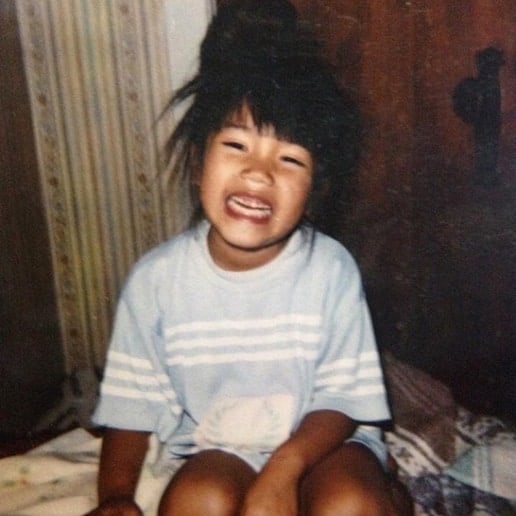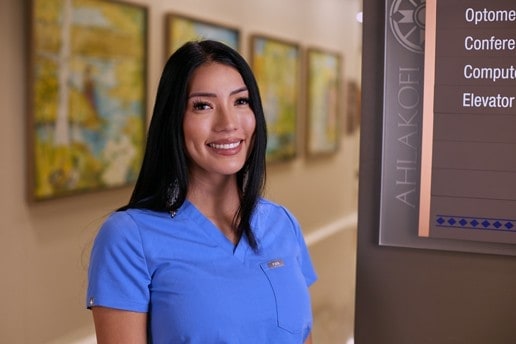Resilience. It’s a word mentioned often, but what does it mean to be resilient beyond the dictionary definition?
What does resilience look like in real life? Tara Thorpe’s story illustrates the irrepressible spirit of generations of Chahta people who not only overcame obstacles but also passed their tenacity to their children, grandchildren, great-grandchildren and so on.
Tara was born into the Choctaw culture. As soon as she could walk, she and her sisters put on shawls and learned to dance. “It was a really personal experience with my sisters,” she remembers. “It was really so sweet because my grandmother would sing in her Native tongue, and we would just dance in a circle.”
When Tara was still young, her mother passed away, and her grandfather adopted Tara and her sisters. They moved to Ft. Smith, Arkansas, to live with him. Her new community lacked the connection to Native American culture that she had before, which became a challenge, but Tara was determined not to lose her tie to her traditions.

“Being raised in a predominantly white community, I really had to find and discover who I was in the midst of assimilating into western culture,” said Tara. “I really had to discover my own roots.”
She recalls feeling alienated from her Choctaw heritage but trying to maintain a link to it through family stories and going with her family to powwows that were closest to home. Seeing the dancers and taking part in Choctaw traditions helped strengthen her cultural bonds. She also learned to make beaded jewelry and keeps her hair long “because it gives [her] strength.”
Growing up away from the Choctaw Nation and her Chahta relatives left Tara searching for role models who could teach her what being Native meant. “I’m the middle child, and my sisters are just really strong Native women… the resilience they have, I really look up to,” said Tara. She also looks up to her aunt, who broke down barriers in her life to earn her Ph.D. in psychiatry and now helps people overcome mental and behavioral health challenges. “I get my strength from them for sure,” Tara said.

Finding out her great-grandmother was a medicine woman for the tribe was also a great influence on Tara. That bit of family history, coupled with an innate nurturing spirit, led her to the nursing field as an adult. Offering holistic care — treating the body, mind and soul together — integrated with modern medicine sets her approach to healthcare apart from other caregivers. Educating patients on the importance of diet, exercise, and meditation leads to healthier people on the whole. “A lifestyle balance along with modern medicine is super important to live a really healthy and fulfilling, high-quality life,” said Tara.
Tara truly loves her career, but it is not without its challenges. As a nurse on the trauma floor in a Level 1, non-profit hospital, Tara often sees people on their worst days. Patients come in with overdoses, gunshot wounds, injuries from automobile accidents and many other conditions that could cause severe physical, mental or emotional damage. According to Tara, some patients feel a sense of powerlessness over their lives when they cannot perform simple tasks for themselves and must rely on her to do things for them. That feeling can lead to anger, but she remains grounded in empathy and tries to remember their frustrations are a result of their pain. “It has zero to do with me,” she said.
“I have this thing where I don’t cry while I’m at work because it’s not about me, but there are some days where I’m driving home, and tears are falling down my face because it’s painful sometimes. Like when you have to transition someone’s mom to the next life, when she’s passing and you have to be there for the family,” said Tara. But she sees a balance between the hard days and the good days. “To know light is to know darkness, so it’s the days I think of when my patient almost died, and fought to live and comes back to your floor after recovered to find you and say thank you.”
No matter how difficult her day is, though, she can’t see herself in any other profession.

"If I could have any job in the world, I would choose to be a nurse. It’s being able to be there for my patients on literally the worst day of their lives... I step in and take care of them — body, mind and soul... I love it."

Because Tara is from a historically underserved population, she tends to relate easily to her patients who are also from underserved communities. She has become keenly aware not only of the trauma that presents itself in the moment but also the generational trauma that accompanies some cases.
Generational trauma stems from events in the past that affected a group of people in a particularly negative way. The anger, fear and grief felt in the wake of the event is passed down from generation to generation. Many Native American communities continue to deal with issues relating to forced relocation, dispossession of land, the outlawing of their languages, spiritual practices and traditions. Today, that trauma manifests itself in higher rates of suicide, depression, certain illnesses, substance abuse, poverty, domestic violence and other disparities.
Sometimes, people don’t realize that what they are experiencing is generational trauma. For Tara, diving into her own choices and behaviors in light of her family history was eye-opening, but she was not without hope. “With that trauma that’s passed down, resilience is a by-product, so I started focusing on the resilient part of myself, and I started to break past different barriers… I went through a forgiving process for the people who let me down, and then I didn’t spend the rest of my life fighting it. I just understood it.”
The future looks pretty bright for Tara Thorpe as well. She recently launched her own small business, Recovery Concierge, which cares for plastic surgery patients when it is time to transition back to their homes.
“I’m pretty proud of that because I literally founded this company by myself from the bottom up,” she said.
The company allows Tara to work in an area of nursing that involves less trauma but still gives her the opportunity to help people when they need it the most.
Before Recovery Concierge became a reality, Tara had company photos taken because she believed in manifesting her dream into reality.

"I’m going to break past these barriers. I’m going to become something. Then one day I’m going to create jobs for my people; I’m going to impact the world. I’m going to be able to change things on a macro level, and it begins with myself."

In addition to being an outstanding caregiver and a small business owner, Tara is representing Native women in science and medicine, a dream she has held since she was a child. According to her, “We need other Native people to be able to understand how to take care of our people the best.”
The fact that Native Americans are genetically predisposed to certain diseases like diabetes and heart disease is another reason the medical field needs more tribal members. Using culturally competent methods can help educate Native communities and help people live longer, healthier lives. Some of those methods are rooted in the lifeways of the past, like eating fresh vegetables and fruits and lean proteins.
“We were warriors. We ate well, we were hunting buffalo, we were gathering berries. We were healthy people, and I think we can get back to that through education,” said Tara.

Because she has conquered so many challenges in her life to get where she is today, Tara believes that resilience is one of the most important qualities a person can have, but it’s also the mark of a truly great culture like that of the Choctaw people.
“I think because I was able to overcome so much as a child, nothing really keeps me down. It makes me feel like I can get past anything, and I think that’s in my blood. As Natives, we are strong. We have the strength of mountains. If we can get through what we’ve gone through, we can overcome anything.”
If you or someone you know is interested in entering the nursing field, the Choctaw Nation can help! Contact our Career Development Program for more information.
